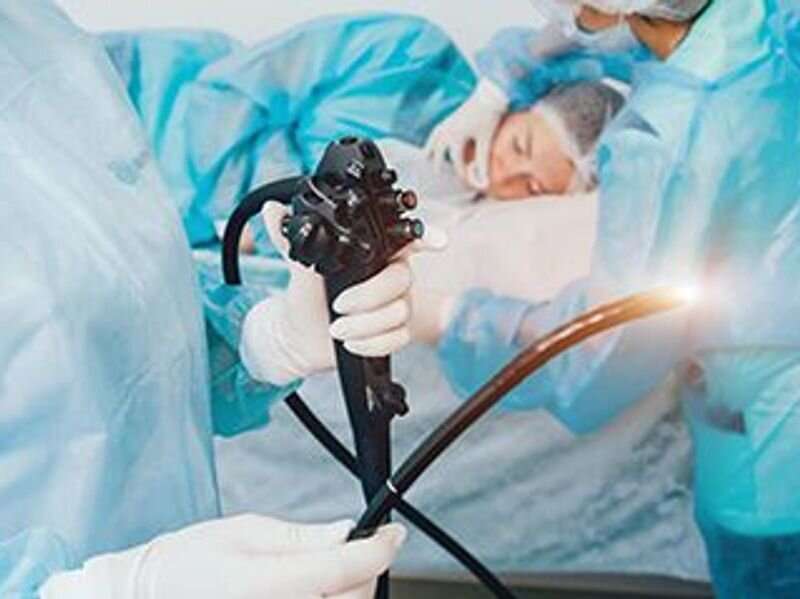
The U.S. Food and Drug Administration cleared the way for marketing of the first device to use artificial intelligence based on machine learning to help detect lesions during colonoscopy, the agency announced Friday.
The GI Genius is designed to highlight portions of the colon where a potential lesion is detected. Using artificial intelligence algorithm techniques, the system identifies regions of interest in real time during colonoscopy and generates markers—green squares accompanied by a short, low-volume sound—and superimposes them on the video from the endoscope camera. These markers can help clinicians to determine whether further assessment is needed. The GI Genius is compatible with other FDA-cleared standard video endoscopy systems.
Marketing authorization of the GI Genius was based on data from a multicenter, prospective, randomized, controlled study in Italy with 700 individuals aged 40 to 80 years undergoing colonoscopy. In primary analyses of a subpopulation of 263 patients being screened at least every three years, colonoscopy using the GI Genius identified lab-confirmed adenomas or carcinomas in 55.1 percent of patients compared with 42 percent of patients using standard colonoscopy. The FDA reports that although use of the GI Genius was related to more biopsies being performed, no adverse events were reported with the additional biopsies. There was a small increase in the number of biopsied lesions that were not adenomas.
“Studies show that during colorectal cancer screenings, missed lesions can be a problem even for well-trained clinicians,” Courtney H. Lias, Ph.D., acting director of the GastroRenal, ObGyn, General Hospital and Urology Devices Office in the FDA Center for Devices and Radiological Health, said in an agency news release. “With the FDA’s authorization of this device today, clinicians now have a tool that could help improve their ability to detect gastrointestinal lesions they may have missed otherwise.”
Source: Read Full Article
